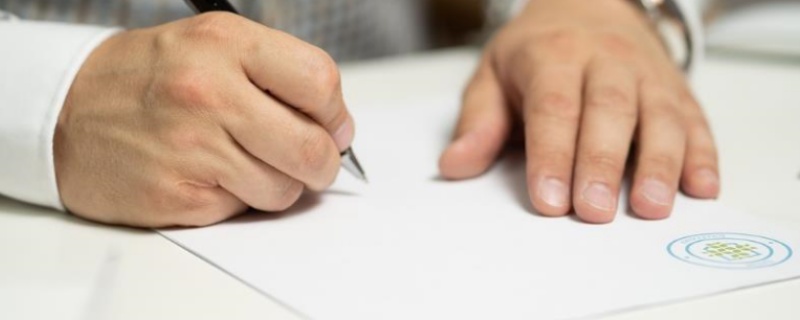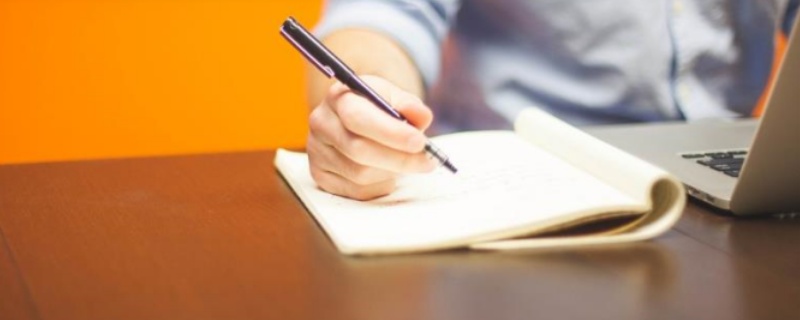上一个:happy
下一个:hang about
"What is happening?"
"The meeting took place off without an incidence"
"Nothing occurred that seemed important"
"It happens that today is my birthday"
"These things befell"
"I happen to have just what you need!"
"Her dream really materialized"
"We find this idea in Plato"
"I happened upon the most wonderful bakery not very far from here"
"She chanced upon an interesting book in the bookstore the other day"
1.(偶然)发生,出现
Something thathappens occurs or is done without being planned.
e.g. We cannot say for sure what willhappen...
我们无法确定会发生什么事。
e.g. The accident happened close to Martha's Vineyard.
事故发生在玛莎葡萄园附近。
2.(作为结果)发生,产生
If somethinghappens, it occurs as a result of a situation or course of action.
happen在线翻译
e.g. She wondered what wouldhappen if her parents found her...
她不知道如果父母找到自己会有什么结果。
e.g. He trotted to the truck and switched on the ignition. Nothing happened.
他匆匆走向卡车并转动点火开关,结果没有任何反应。
3.(尤指不愉快的事)发生(在…身上);(某人)遭到;遇到
When something, especially something unpleasant,happens to you, it takes place and affects you.
e.g. If we had been spotted at that point, I don't know what would have happened to us...
如果当时我们被发现了,我不知道会有什么后果。
e.g. It's the best thing that ever happened to me.
这是我所遇到的最好的事情了。
4.碰巧;凑巧
If youhappen to do something, you do it by chance. Ifit happens that something is the case, it occurs by chance.
e.g. We happened to discover we had a friend in common...
我们凑巧发现我们有一个共同的朋友。
e.g. I looked in the nearest paper, which happened to be the Daily Mail...
我仔细看了一下离自己最近的那份报纸,正巧是份《每日邮报》。
5.碰巧,恰恰(尤引出令人意外的事)
You useas it happens in order to introduce a statement, especially one that is rather surprising.
e.g. She called Amy to see if she had any idea of her son's whereabouts. As it happened, Amy had.
她打电话给埃米,看她是否知道自己儿子的行踪。埃米还真就知道。
1. 碰巧:forget忘记 |happen碰巧 | hate憎恨,厌恶
2.
2. (偶然)发生:handy 便利的,顺手的 |happen (偶然)发生 | ▲happiness 幸福,愉快
3. 强调偶然性:come about发生; (风等)改变方向; 转帆, 转航向 |happen强调偶然性 | take place强调必然性或按计划而发生
She happened along just as we were about to leave.
当我们将要离开的时候,她突然来访。
Guess who happened along while I was waiting for the bus.
你猜猜看,我在等公共汽车时谁碰巧也来了?
You were obviously annoyed that the child had happened along.
那孩子此时出现你显然很生气。
I happened on John in the park.
我在公园里碰巧遇到约翰。
We happened on an old country inn, and stopped to have a meal.
我们碰巧发现一家古老的乡村小旅店,就停下来吃了一顿饭。
The children happened on a charming little stream near the camp.
孩子们无意间在宿营地附近发现了一条可爱的小溪。
He happened upon the perfect solution to the problem just as he was about to give up his research.
正当他要放弃自己的研究时,他偶然发现了解决这个问题的最佳方案。
The boy is crying.What has happened to him?
那孩子在哭,他怎么啦?
If anything should happen to you, follow my advice.
万一你碰上什么意外,照我的话去做。
The brakes failed.Has that ever happened to you?
车闸失灵了,你以前发生过这种情况吗?
What happened to him next?
后来他怎样了?
Be careful; don't let anything happen to that child.
小心些,别让那个孩子出任何事。
A bad accident happened to that family.
那家人遇到了极其不幸的灾祸。
What has happened to your hand?
你的手怎么了?
If anything happens to the machine, please let me know.
要是机器出了毛病,请告诉我。
If anything happens to me, recollect that death is a debt we must all pay.
出自:H. NelsonNo harm shall happen you.
出自:E. S. BarrettWhen we crossed into Gael, an interesting thing happened.
出自:G. VidalI'm not someone who makes miracles happen.
出自:P. RothThe accident happened at six o'clock.
事故发生在六点钟。
It is impossible to anticipate when it will happen.
不可能预料这事何时发生。
I happened to see her yesterday.
我昨天碰巧见到她。
I happen to have the official statistics with me.
我碰巧身边有官方的统计数字。
I tremble at the thought of what may happen.
我想到可能出现的情况就不寒而栗。
I happened on just the thing I'd been looking for.
我偶然发现了我一直在寻找的东西。
Do you know what happened to Gill Lovecy (= have you any news about her) ?
你有吉尔·洛夫西的消息吗?
What's happened to your car?
你的车出什么毛病了?
It's the best thing that has ever happened to me.
这是我所遇到的最好的事。
I hope nothing (= nothing unpleasant) has happened to them.
我希望他们没出事。
'u2018Sorry'u2500I've spilt some wine. 'u2019 'u2018Never mind. These things happen. 'u2019
“对不起,我弄洒了些酒。”“没关系。这种事在所难免。”
It just so happened they'd been invited too.
他们碰巧也获得邀请。
As it happens, I have a spare set of keys in my office.
碰巧我在办公室有一套备用钥匙。
I agree with you, as it happens.
我恰恰和你意见一致。
That happens to be my mother you're talking about!
你们谈论的是我母亲!
It happened that she was out when we called.
我们打电话时她刚巧不在家。
You don't happen to know his name, do you?
你不会碰巧知道他的名字吧?
She happened to be out when we called.
我们打电话时她刚巧不在家。
Just plug it in and see what happens .
就把插头插上,看看会怎么样。
What happens if nobody comes to the party?
要是没有人来参加聚会,会怎么样呢?
She pressed the button but nothing happened.
她按下按钮,但什么反应也没有。
I don't know how this happened.
我不知道这事怎么发生的。
I'll be there whatever happens .
不管发生什么事我都会到那儿的。
Let's see what happens next week.
咱们等着瞧下一周会怎么样。
Accidents like this happen all the time.
此类事故经常发生。
You'll never guess what's happened!
你根本猜不到出了什么事!
She called Amy to see if she had any idea of her son's whereabouts. As it happened, Amy had.
她打电话给埃米,看她是否知道自己儿子的行踪。埃米还真就知道。
I looked in the nearest paper, which happened to be the Daily Mail...
我仔细看了一下离自己最近的那份报纸,正巧是份《每日邮报》。
We happened to discover we had a friend in common...
我们凑巧发现我们有一个共同的朋友。
It's the best thing that ever happened to me.
这是我所遇到的最好的事情了。
If we had been spotted at that point, I don't know what would have happened to us...
如果当时我们被发现了,我不知道会有什么后果。
He trotted to the truck and switched on the ignition. Nothing happened.
他匆匆走向卡车并转动点火开关,结果没有任何反应。
She wondered what would happen if her parents found her...
她不知道如果父母找到自己会有什么结果。
The accident happened close to Martha's Vineyard.
事故发生在玛莎葡萄园附近。
We cannot say for sure what will happen...
我们无法确定会发生什么事。
I won't let ithappen again.
我不会再让这种事发生了。
2016全国卷2
Perhaps the neighbors justhappened to "overhear" the cry.
也许邻居们只是碰巧"无意中"听到了哭声。
2017全国卷2
That does not alwayshappen.
这种情况并不总是发生。
2021英语二
It is as though 20 years of ever-tougher reforms of the job search and benefit administration system neverhappened.
这就好像20年来对求职和福利管理制度更严格的改革从未发生过一样。
2014英语一
Either Entergy never really intended to live by those commitments, or it simply didn't foresee what wouldhappen next.
要么Entergy从未真正打算遵守这些承诺,要么它根本没有预见到接下来会发生什么。
2012英语一

四川高考志愿填报方式:1、进入页面;2、修改密码;3、填报须知;4、查看个人基本信息;5、志愿类别选择;6、填写志愿和修改志愿;7、填写或修改志愿结束后,单击页面底部的[保存并提交]按钮,则所填写的志愿数据将得到保存,保存即表示该批次志愿已经提交。

新疆高考志愿填报方式:1、建议考生上网填报志愿前,先将选报的志愿填写到志愿草表上。2、登录指定网页后输入信息。3、首次登录后必须修改密码。4、选择批次填报志愿。5、检查核对。6、保存志愿信息后退出。

1、考生用用户名和密码登录系统。2、阅读承诺书并确认。3、进入填报页面。4、点击要填写的批次,进入志愿填写页面。5、如果考生在填报过程中需要修改志愿者信息,可以在指定时间内进行自愿修改。6、考生自愿验证正确后,安全退出系统。7、各阶段自愿填写完成后,系统将关闭3小时。